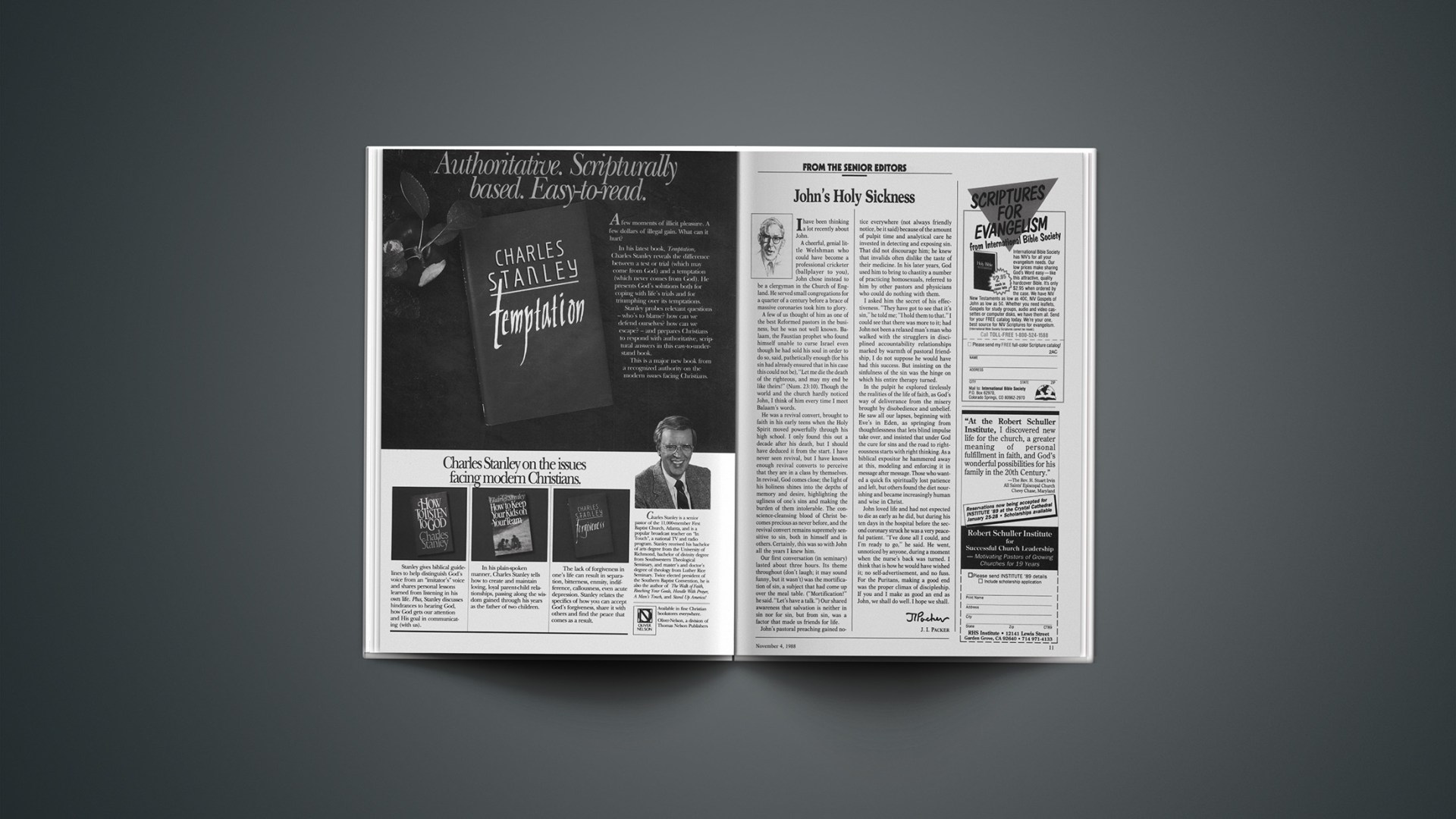I have been thinking a lot recently about John.
A cheerful, genial little Welshman who could have become a professional cricketer (ballplayer to you), John chose instead to be a clergyman in the Church of England. He served small congregations for a quarter of a century before a brace of massive coronaries took him to glory.
A few of us thought of him as one of the best Reformed pastors in the business, but he was not well known. Balaam, the Faustian prophet who found himself unable to curse Israel even though he had sold his soul in order to do so, said, pathetically enough (for his sin had already ensured that in his case this could not be), “Let me die the death of the righteous, and may my end be like theirs!” (Num. 23:10). Though the world and the church hardly noticed John, I think of him every time I meet Balaam’s words.
He was a revival convert, brought to faith in his early teens when the Holy Spirit moved powerfully through his high school. I only found this out a decade after his death, but I should have deduced it from the start. I have never seen revival, but I have known enough revival converts to perceive that they are in a class by themselves. In revival, God comes close; the light of his holiness shines into the depths of memory and desire, highlighting the ugliness of one’s sins and making the burden of them intolerable. The conscience-cleansing blood of Christ becomes precious as never before, and the revival convert remains supremely sensitive to sin, both in himself and in others. Certainly, this was so with John all the years I knew him.
Our first conversation (in seminary) lasted about three hours. Its theme throughout (don’t laugh; it may sound funny, but it wasn’t) was the mortification of sin, a subject that had come up over the meal table. (“Mortification!” he said. “Let’s have a talk.”) Our shared awareness that salvation is neither in sin nor for sin, but from sin, was a factor that made us friends for life.
John’s pastoral preaching gained notice everywhere (not always friendly notice, be it said) because of the amount of pulpit time and analytical care he invested in detecting and exposing sin. That did not discourage him; he knew that invalids often dislike the taste of their medicine. In his later years, God used him to bring to chastity a number of practicing homosexuals, referred to him by other pastors and physicians who could do nothing with them.
I asked him the secret of his effectiveness. “They have got to see that it’s sin,” he told me; “I hold them to that.” I could see that there was more to it; had John not been a relaxed man’s man who walked with the strugglers in disciplined accountability relationships marked by warmth of pastoral friendship, I do not suppose he would have had this success. But insisting on the sinfulness of the sin was the hinge on which his entire therapy turned.
In the pulpit he explored tirelessly the realities of the life of faith, as God’s way of deliverance from the misery brought by disobedience and unbelief. He saw all our lapses, beginning with Eve’s in Eden, as springing from thoughtlessness that lets blind impulse take over, and insisted that under God the cure for sins and the road to righteousness starts with right thinking. As a biblical expositor he hammered away at this, modeling and enforcing it in message after message. Those who wanted a quick fix spiritually lost patience and left, but others found the diet nourishing and became increasingly human and wise in Christ.
John loved life and had not expected to die as early as he did, but during his ten days in the hospital before the second coronary struck he was a very peaceful patient. “I’ve done all I could, and I’m ready to go,” he said. He went, unnoticed by anyone, during a moment when the nurse’s back was turned. I think that is how he would have wished it; no self-advertisement, and no fuss. For the Puritans, making a good end was the proper climax of discipleship. If you and I make as good an end as John, we shall do well. I hope we shall.
J. I. PACKER










